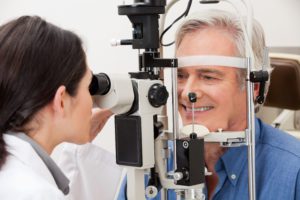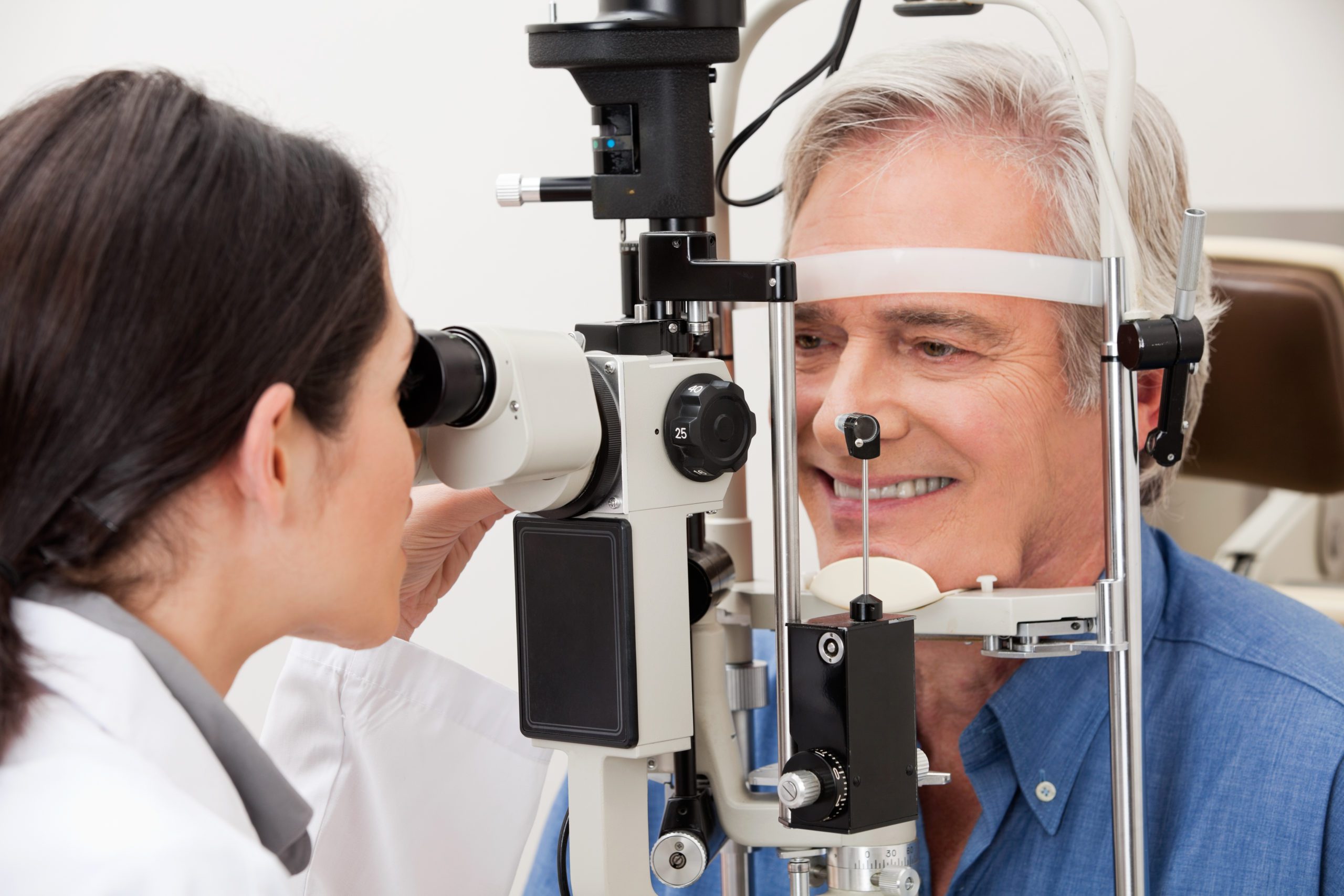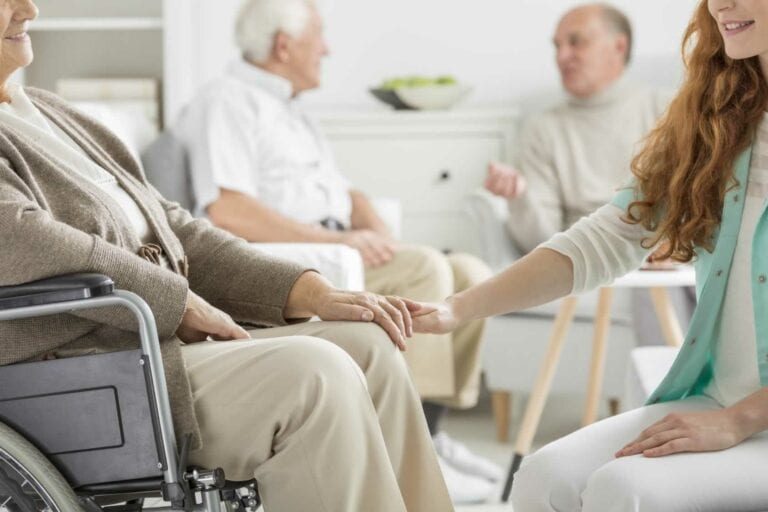
What is Glaucoma?
Glaucoma is an optic nerve weakness. Glaucoma is also said as a neurodegenerative disorder of the optic nerve. In which fluids build up and cause pressure on your eye that damage the optic nerve. This damage may lead to permanent blindness.
Blindness is something that not happened in one day. A person with Glaucoma gradually lost his eyesight, but a diagnosis and treatment on time can reverse the situation by lowering the pressure in an elder.
Anyone in the world can have Glaucoma, but people with a family history of Glaucoma have more chances to get Glaucoma. Glaucoma can be genetic.
Glaucoma is a disease with which we do not want to deal, especially with the seniors. Senior health care required a lot of effort, but with few steps, you can prevent Glaucoma in seniors. Before that, we should learn few things regarding Glaucoma.
Mainly there are two types of Glaucoma, and others are less frequent.
Their names are Open-angle Glaucoma and angle-closure Glaucoma.
Other types are pigmentary Glaucoma, Secondary Glaucoma, normal-tension Glaucoma, traumatic Glaucoma, congenital Glaucoma, pseudoexfoliative Glaucoma, uveitic Glaucoma, neovascular Glaucoma, and lrido corneal endothelial syndrome.
What are the causes of fluid pressure built up in the eye?
There are many causes like hypertension, diabetes, macular edema (leakage and built up of liquid in macular due to damaged blood vessel), a side effect of medication, aging, heart disease, heart problems, thin cornea, inheritance, blocked drainage in eyes, poor blood flow, any injury, and aqueous humor.
Among them, the leading cause of Glaucoma is building fluid, damaged blood vessels, and aqueous humor. Others reasons also have a high ratio.
What are the symptoms of Glaucoma?
Senior citizens have more risk than adults and young to have glaucoma diseases. Growing age not only gives you seniority, experience, and respect, but it also holds weakness and many other disorders for elders. At this rate keeping, any unusual change becomes more crucial for senior health care and a major task for any caregiver. Even if you provide health care service at home or in a senior daycare center, a change in health condition can be a symptom of a disease like Glaucoma or any other.
- Nausea
- Eye pain
- Vomiting
- Red eyes
- Blurred vision
- Headache
- Tenderness
- Seeing halos
- Dimness
- Cloudiness
- Dilated pupil
- Throbbing around eye
- Patchy blind spots
- Defective sight
If these symptoms occur in any elder or MS patient. It is suggested to see your doctor for diagnosis and treatment.
How to prevent Glaucoma in senior citizens?
Seniors are remaining at high risk for Glaucoma because of aging and other health issues. Self-care is more important for our elders, but if an elder is seeking health care services. Then it is up to you as a caregiver at home or in daycare to check or ask them for any uncertain change in vision or described symptoms. You can also take these measurements to prevent Glaucoma in seniors.
- Add Omega-3 to their diet. Omega-3 is not only good for overall health but also helps to prevent Glaucoma.
- Take them for a routine eye exam.
- Watch out for symptoms as skilled nurse for elders.
- Know about your family glaucoma history
- Live healthy life
- Exercise properly
- Take healthy diet
- Take eye drops regularly
- Wear glasses
- Please encourage them to talk about their health conditions or any problem with vision.
- Provide special treatment if they are living in senior nursing homes.
Diagnose for Glaucoma:
“Even I go for diagnose or not, and I am going to blind” How could you think it. Glaucoma appears slowly, and it does not happen suddenly within a night. All kinds of Glaucoma have their treatment. Early diagnosis, early treatment protect the seniors from blindness.
A doctor can conduct a painless test to diagnose Glaucoma. The doctor will measure the eye, shape, and pressure on the eye. After evaluation, he can tell you about the glaucoma type. He will also recommend a treatment. That can be medication, drops, laser, or surgery.
Who has a high risk for Glaucoma?
People with high risk are:
- Neglected seniors are high at risk
- Diabetic
- Patient with hypertension and depression
- Any person who has a family history of Glaucoma
- Seniors citizens above 60s
- Women are at increased danger than men
- Races: Hispanics, Africans, and Asians.
Things to avoid with Glaucoma in seniors citizens:
Few things can trigger Glaucoma, just like high level of caffeine, fatty food, cheese, butter, bacon, salami, and creamy milk
- Upside-down poses in yoga
- high insulin level is not suitable for Glaucoma
- During sleep, compression against the pillow
- Drinking more water
- Hypertension in elders
Things to do with Glaucoma:
- Do not skip your eye examination,
- Take your medicines properly,
- Take 8-hour sleep
- Eat a banana, avocado, egg, black beans, pumpkin seeds, beans, leafy vegetables, nuts, beets, Omega-3 fish, dark chocolate, and simple hot tea
- Take Vitamin B, but after your doctor recommendation
- Add turmeric to food
In- assisted home care, it is easier to protect an elder from Glaucoma. The best prevention and safety from Glaucoma is to go for a routine checkup of a senior citizen. A doctor will recommend the best treatment for Glaucoma according to the health condition of a senior citizen.
If the patient has another disease with Glaucoma or other poor health conditions, the best practice is to tell their doctor about it and medication. Maintain the medicines properly. Patients with diabetes, kidneys, and high blood pressure need more care. Even they are in health facilities, home, and senior daycare centers. A doctor can ask to maintain insulin level or HPT. He can also consult with others doctors. Staying at home or in senior nursing home and ignoring the symptoms is not a solution. People who ignore certain health conditions become blind at the last stage. Early diagnosis and home care for the senior citizens is the best solution for preventing Glaucoma and protecting eyes.







